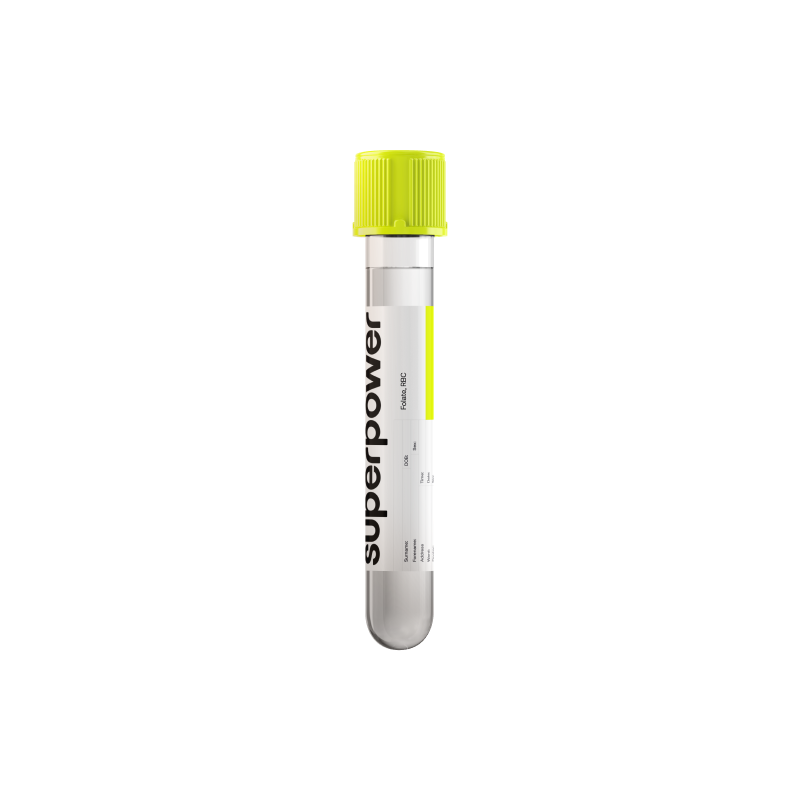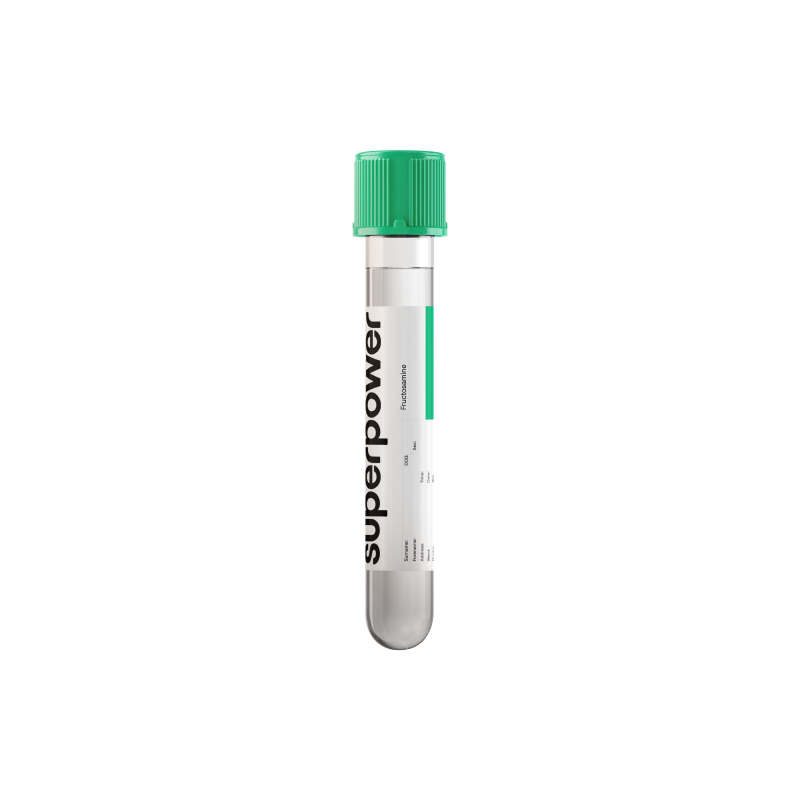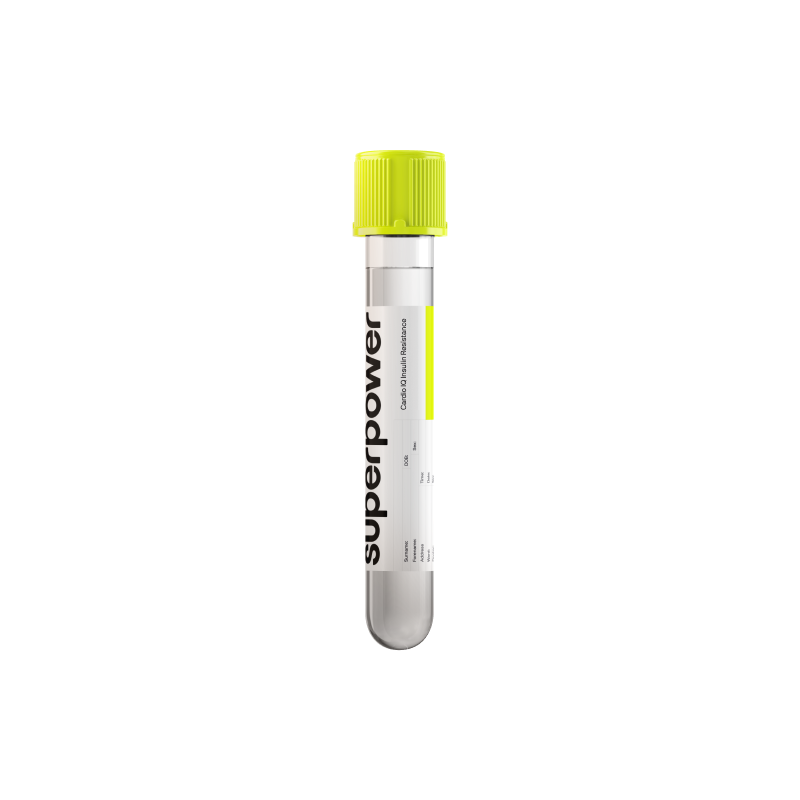Do I need an Insulin test?
Struggling with weight gain, constant cravings, or energy crashes despite eating regularly? Could your insulin levels be working overtime, and might testing reveal what's really going on?
Insulin is the hormone that controls how your body stores and uses sugar for energy. When insulin levels run too high or become less effective, you may experience stubborn weight gain, intense cravings, and exhausting energy swings.
Testing your insulin gives you a vital snapshot of your metabolic health, helping pinpoint whether insulin resistance is fueling your symptoms. It's the essential first step to personalizing your nutrition, exercise, and lifestyle choices so you can finally break free from those frustrating cycles.
Get tested with Superpower
If you’ve been postponing blood testing for years or feel frustrated by doctor appointments and limited lab panels, you are not alone. Standard healthcare is often reactive, focusing on testing only after symptoms appear or leaving patients in the dark.
Superpower flips that approach. We give you full insight into your body with over 100 biomarkers, personalized action plans, long-term tracking, and answers to your questions, so you can stay ahead of any health issues.
With physician-reviewed results, CLIA-certified labs, and the option for at-home blood draws, Superpower is designed for people who want clarity, convenience, and real accountability - all in one place.
Key benefits of Insulin testing
- Reveals how well your body regulates blood sugar and energy storage.
- Spots early insulin resistance before diabetes or prediabetes develops.
- Explains stubborn weight gain, fatigue, or intense sugar cravings.
- Guides personalized diet and lifestyle changes to restore metabolic balance.
- Flags risk for PCOS, fatty liver, and cardiovascular disease.
- Tracks whether treatment or lifestyle interventions are improving insulin sensitivity.
- Best interpreted with fasting glucose and HbA1c for complete metabolic insight.
What is Insulin?
Insulin is a hormone made by specialized cells in the pancreas called beta cells. These cells sit in clusters known as the islets of Langerhans and release insulin directly into the bloodstream. It is a small protein that acts as a master regulator of energy storage and use throughout the body.
Your body's key to unlocking energy
Insulin's main job is to help glucose (blood sugar) move from the bloodstream into cells, where it can be used for fuel or stored for later. Without insulin, glucose stays trapped in the blood and cells go hungry. Insulin also signals the liver and muscles to store excess glucose as glycogen and tells fat cells to hold onto stored fat.
The hormone that keeps blood sugar in check
When you eat, blood sugar rises and the pancreas responds by releasing insulin. This keeps blood sugar levels stable and ensures that energy reaches the tissues that need it. Insulin is essential for metabolism, growth, and overall energy balance.
Why is Insulin important?
Insulin is the master hormone that governs how your body uses and stores energy from food. Produced by the pancreas, it acts as a key that unlocks cells to let glucose in for fuel, while also directing fat and protein storage. When insulin signaling works smoothly, blood sugar stays stable, organs receive steady energy, and metabolic health thrives.
Your cells need insulin to eat
Fasting insulin typically ranges from 2 to 20 µIU/mL, with optimal levels sitting in the lower half of that range. When insulin is too low, cells can't access glucose efficiently, leading to fatigue, weight loss, and muscle wasting. In type 1 diabetes, the pancreas produces little to no insulin, causing blood sugar to rise dangerously and forcing the body to burn fat and muscle for fuel.
High insulin signals metabolic stress
Elevated insulin often appears years before blood sugar rises, reflecting insulin resistance where cells ignore insulin's signal. The pancreas compensates by pumping out more, creating a vicious cycle. High levels drive weight gain (especially around the abdomen), increase hunger and cravings, raise blood pressure, and promote inflammation. Women with polycystic ovary syndrome often show elevated insulin, which disrupts ovulation and hormone balance.
Insulin connects metabolism to long-term health
Insulin doesn't work alone. It interacts with cortisol, growth hormone, and thyroid function to orchestrate energy balance. Chronically high insulin accelerates the path toward type 2 diabetes, cardiovascular disease, fatty liver, and even certain cancers. Monitoring insulin alongside glucose reveals metabolic health long before disease appears.
What do my Insulin results mean?
Low insulin values
Low values usually reflect reduced pancreatic insulin secretion or very low carbohydrate intake. In type 1 diabetes or advanced pancreatic disease, beta cells produce little to no insulin, leading to uncontrolled blood sugar and reliance on external insulin. In people without diabetes, very low fasting insulin may occur with prolonged fasting, ketogenic diets, or excellent insulin sensitivity, though this is less common. Chronically low insulin can impair glucose uptake into cells and limit anabolic processes like protein synthesis and fat storage.
Optimal insulin values
Being in range suggests your pancreas is producing appropriate amounts of insulin to manage blood glucose without overworking. Optimal fasting insulin typically sits toward the lower end of the reference range, often below 10 µIU/mL, reflecting good insulin sensitivity. This means your cells respond efficiently to insulin, requiring less hormone to maintain stable blood sugar and metabolic balance.
High insulin values
High values usually reflect insulin resistance, where cells respond poorly to insulin and the pancreas compensates by secreting more. This is common in prediabetes, type 2 diabetes, metabolic syndrome, polycystic ovary syndrome, and obesity. Elevated insulin promotes fat storage, inflammation, and can strain beta cells over time, eventually leading to their exhaustion and declining insulin production.
Factors that influence insulin levels
Insulin levels vary with meal timing, carbohydrate intake, stress, medications like corticosteroids, and conditions affecting the pancreas or liver. Fasting samples are standard for interpretation, as postprandial insulin rises normally after eating.
Method: FDA-cleared clinical laboratory assay performed in CLIA-certified, CAP-accredited laboratories. Used to aid clinician-directed evaluation and monitoring. Not a stand-alone diagnosis.

.svg)



.png)
.png)
.png)
.png)
.png)








.png)